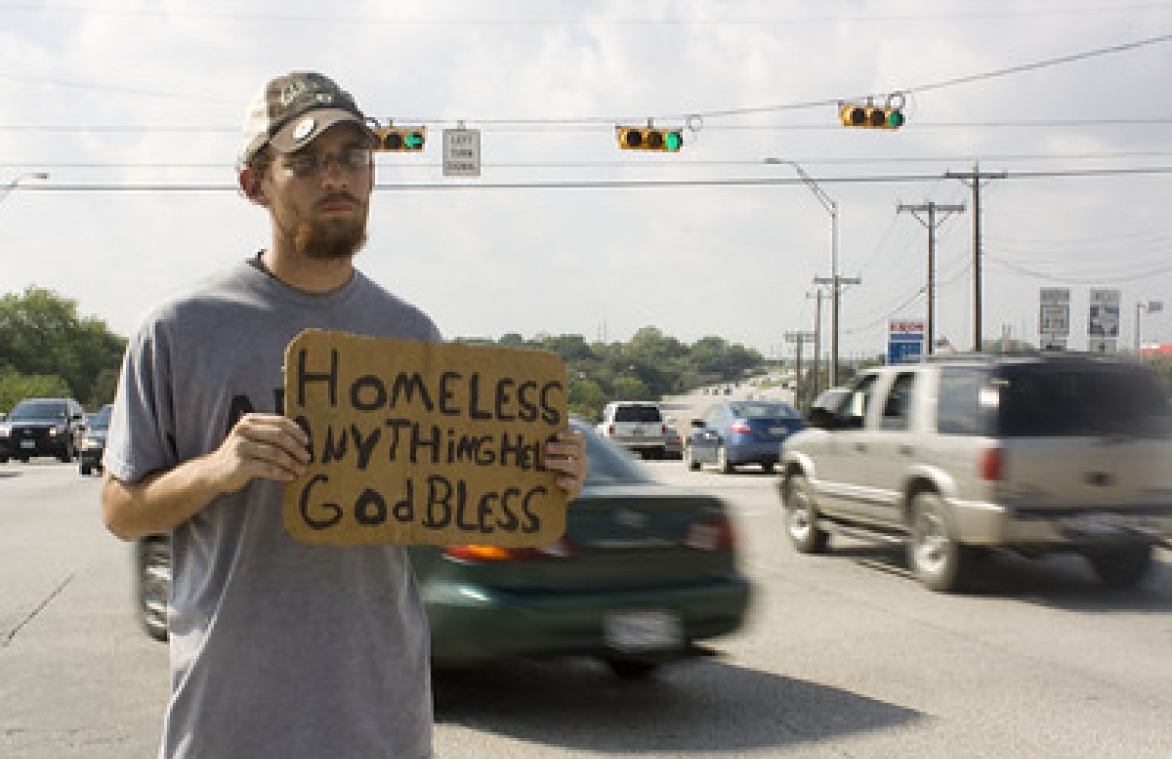Arkansas’ anti-loitering law violates the First Amendment, a federal appeals court has ruled. The appeals court reasoned that the state of Arkansas discriminated against a particular type of speech without adequate justification.
Michael Andrew Rodgers and Glynn Dilbeck, two self-described beggars, challenged the constitutionality of the law in federal court.
Arkansas anti-loitering law targeted to begging
The anti-loitering law provides in pertinent part:
A person commits the offense of loitering if he or she:
Lingers or remains on a sidewalk, roadway, or public right-of-way, in a public parking lot or public transportation vehicle or facility, or on private property, for the purpose of asking for anything as charity or a gift:
In a harassing or threatening manner;
In a way likely to cause alarm to the other person; or
Under circumstances that create a traffic hazard or impediment.
A federal district court granted an injunction, prohibiting enforcement of the law. The district court reasoned that the law was a content-based restriction on speech and the government could not justify a compelling state interest in support of the law.
8th Circuit says law was content-based, fails First Amendment test
On appeal, a three-judge panel of the 8th U.S. Circuit Court of Appeals unanimously affirmed in Rodgers v. Bryant. The appeals court panel determined that the law was clearly a content-based restriction on speech, because it only applies to those who ask for charity or gifts.
The state of Arkansas argued that the law advances the state’s compelling interests in in public and motor vehicle safety by preventing aggressive conduct and traffic hazards.
The 8th Circuit panel reasoned that even if the state has compelling interests in upholding the law, the law is not narrowly drawn. Instead, the panel reasoned that the law was too underinclusive because it did not apply to other types of solicitation – political or commercial – that could also be threatening or harassing.
“Because Arkansas has offered no justification for its decision to single out charitable solicitation from other types of solicitation, the anti-loitering law is underinclusive and, consequently, not narrowly tailored,” the panel explained.
David L. Hudson Jr. is a First Amendment Fellow at the Freedom Forum Institute, and a law professor at Belmont University who publishes widely on First Amendment topics. He is the author of a 12-lecture audio course on the First Amendment titled “Freedom of Speech: Understanding the First Amendment” (Now You Know Media, 2018). He also is the author of many First Amendment books, including “The First Amendment: Freedom of Speech” (Thomson Reuters, 2012) and “Freedom of Speech: Documents Decoded” (ABC-CLIO, 2017).

